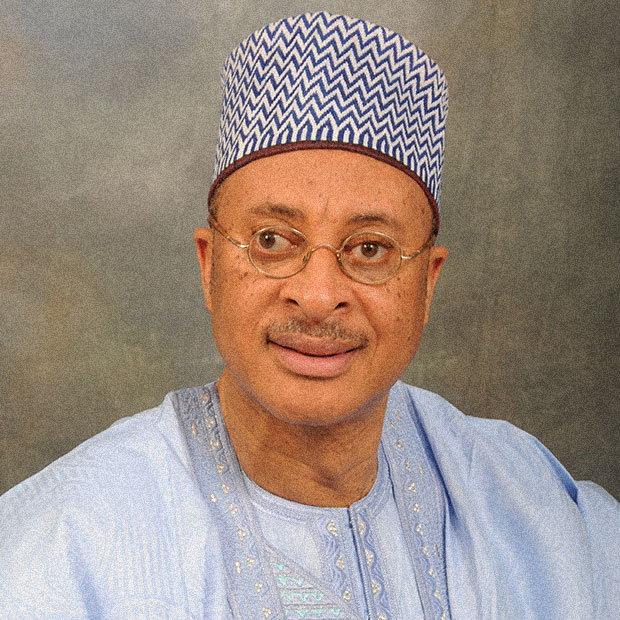Pat Utomi Vows Not to Contest or Accept Government Appointment, Calls for Democratic Renewal in Nigeria
Veteran economist Pat Utomi rules out political ambitions, forms shadow government to challenge Nigeria’s leadership, and calls for a true democratic revival.


Professor Pat Utomi, a renowned professor of political economy and long-time advocate for good governance in Nigeria, has declared that he will never again contest for any political office or accept any government appointment or contract. Utomi made this clear during a recent appearance on Channels Television’s Politics Today, emphasizing that his focus is now solely on the well-being of future generations and the restoration of meaningful democracy in Nigeria.
Utomi’s decision is rooted in principle and a desire to remain untainted by the corruption often associated with Nigerian politics. He stressed that he has lived his life decently, without government money or stealing from anyone, and wants to dispel any rumors that he is seeking contracts or positions for personal gain.
As he put it:
“Let me state clearly: I will not run for public office, I will not accept an appointment, contract by any government in Nigeria. My only concern is the well-being of the next generation.”
Shadow Government Initiative
Beyond distancing himself from direct political engagement, Utomi has taken a bold step by forming a shadow government under the Big Tent Coalition. This initiative, launched virtually in early May 2025, is designed to serve as a credible opposition to President Bola Tinubu’s administration and address what Utomi describes as a “national emergency response” to Nigeria’s deepening crises.
The shadow government is composed of professionals and public figures from across opposition parties. Its mandate is to scrutinize government actions, identify policy failures, and propose alternative solutions in critical areas such as the economy, education, healthcare, infrastructure, law and order, and constitutional reform. Members of the shadow cabinet include human rights lawyer Dele Farotimi (Ombudsman and Good Governance), Oghene Momoh, Cheta Nwanze, Daniel Ikuonobe, Halima Ahmed, David Okonkwo, and Obi Ajuga, among others.
Utomi insists that the shadow government is not a rebellion or an attempt to seize power, but a democratic mechanism for citizens to hold leaders accountable and offer policy alternatives.
He clarified;
“The Shadow Government is not a rebellion. It is not a claim to executive authority. It is not a parallel structure to the state. Rather, it is a citizens’ platform for responsible democratic opposition-an initiative rooted firmly in the Nigerian Constitution.”
Criticism and Legal Battle
The formation of the shadow government has sparked strong reactions from the Federal Government and the ruling All Progressives Congress (APC), who have labeled the move as unconstitutional and a threat to constitutional order. The Department of State Services (DSS) has even taken legal action, dragging Utomi to court and accusing him of attempting to unlawfully usurp the executive powers of President Tinubu. The DSS argues that Utomi’s initiative amounts to operating an alternative government, contrary to the provisions of the 1999 Constitution.
APC’s spokesperson, Felix Morka, mocked Utomi as an “intellectual drama king” and dismissed the shadow government as an unrealistic exercise in free speech, questioning Utomi’s past political failures and motives. Utomi, in response, argued that the government’s anxiety over basic civic engagement shows a fear of scrutiny and a lack of openness to democratic accountability.
Why a Shadow Government Now?

Utomi’s move comes at a time when Nigeria is facing severe socioeconomic challenges. Inflation is soaring, energy prices have quadrupled, oil revenues are unstable, and unemployment is rising as multinational companies exit the country. He points to the recent wave of defections to the APC as evidence that democracy in Nigeria is failing, with the ruling party consolidating power and choking the democratic space. In the 10th National Assembly, the APC now commands a significant majority, reducing the opposition’s ability to check government excesses.
Utomi believes that without a courageous and responsive opposition, the will of the people is at risk of being subverted. He has called on Nigerians to read the Afrobarometer, a long-running public opinion survey, which shows that while Africans still believe in democracy, they are increasingly frustrated by its failure. He argues that the current system is more about individual gain and power than serving the people, and that a renewal or revival of democracy is urgently needed.
A Call for Democratic Renewal
Utomi’s vision is for a Nigeria where citizens are empowered to demand accountability, where opposition is respected as a vital part of democracy, and where politics is about service, not personal enrichment. He has urged political leaders and citizens alike to embrace the idea of a shadow government as a way to restore hope, integrity, and meaningful public debate in Nigerian democracy.
Despite facing criticism and legal challenges, Utomi remains steadfast in his commitment to democratic values and the well-being of the next generation. He has made it clear that his efforts are not driven by personal ambition, but by a deep concern for Nigeria’s future and a desire to see true democracy take root once again.
In summary:
Pat Utomi has permanently withdrawn from seeking public office or government appointments, choosing instead to lead a shadow government that challenges the status quo, demands accountability, and advocates for the restoration of genuine democracy in Nigeria. His initiative has sparked both fierce criticism and legal opposition, but also opened .
Stay woke. Stay tuned. Stay with Akewe News.




